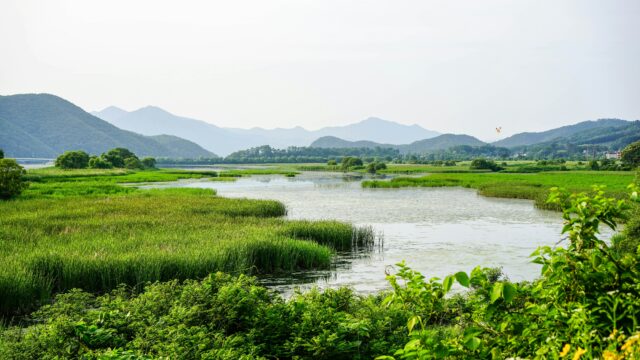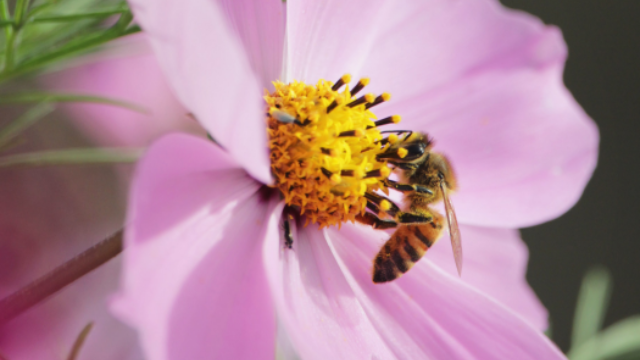South Africa's natural capital challenge
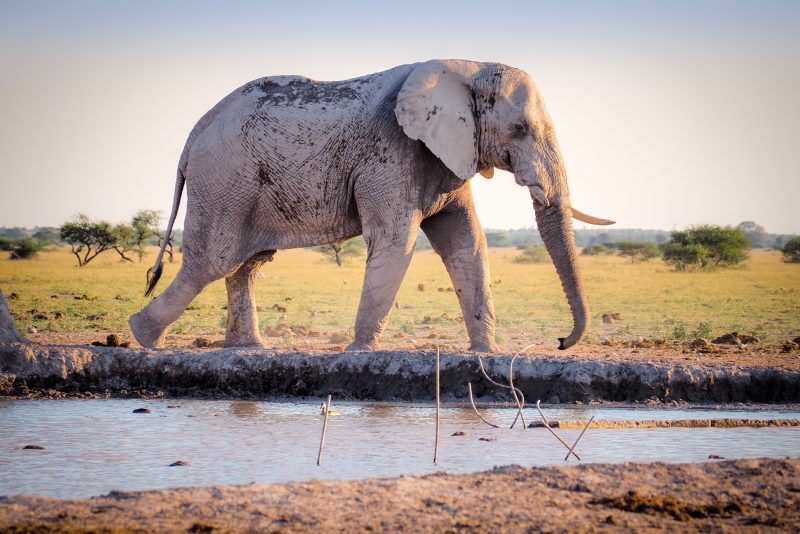
South Africa is one of the world's most biodiverse nations, home to untold ecological riches and a dizzying array of flora and fauna. But under pressure from development and population growth, increasingly this priceless wildlife is coming under threat, and many species are in marked decline. Shakespear Mudombi, Sustainable Growth Economist at our South African partners TIPS, here takes stock of the challenges and opportunities facing the Rainbow Nation.
"Natural capital" refers to the natural resources used to generate economic growth and ecosystem services that support economic activities (UNEP 2016). South Africa is well endowed in various aspects of nature. These includes a wide range of habitats, ecosystems and landscapes comprising of nine terrestrial biomes, 30 freshwater eco-regions and six marine eco-regions (DEA 2016a). The country is amongst the top countries in terms of biodiversity.
Increasingly, a strong link between the country’s economic activities and environmental degradation is noted. South Africa’s sustainability challenges can be revealed by looking at the Ecological Footprint (EF), which assesses how much of the regenerative capacity of the biosphere is used up by human activities. Figure 1 shows the trends of EF and biocapacity for the country. In general, a deficit has been experienced since 1963, and has been growing ever since.
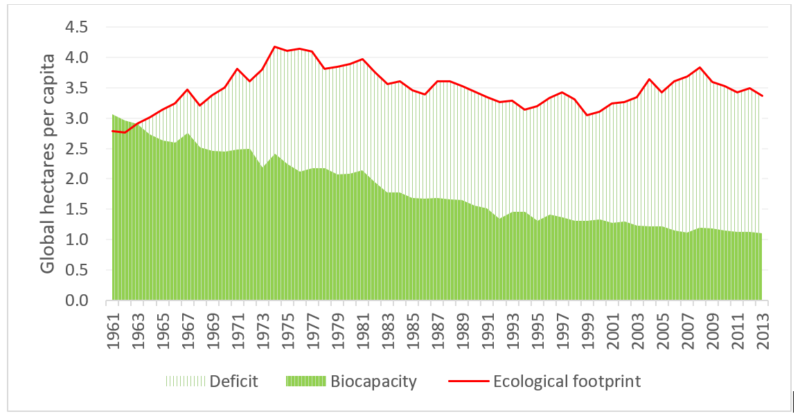
Figure 1: Ecological footprint and biocapacity per capita for South Africa from 1961 to 2013. Source: Author’s composition, based on data from Global Footprint Network (2017).
Progress and challenges
Protection of natural capital
The protection of nature and ecosystems is a priority area for the government. Significant progress has been made in the designation of protected areas and conservation areas (Figure 2). In 2017, there were about 37 conservation areas covering a total of 11.5 million hectares, and about 1 526 protected areas covering a total of 30.2 million hectares. A huge increase in protected area in 2013 can be attributed to the designation of the Prince Edward Islands Marine Protected Area (MPA), which is the country’s the first offshore MPA.
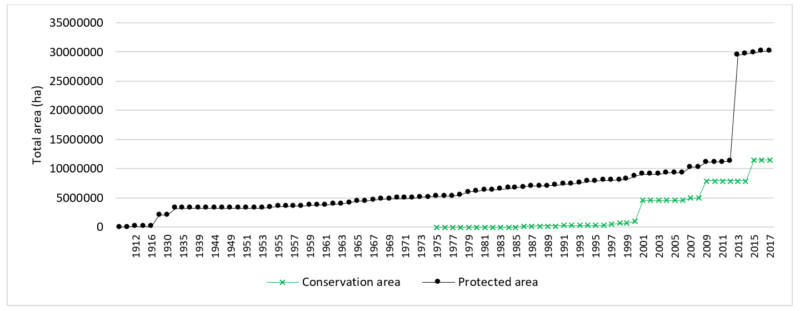
Figure 2: Growth in protected and conservation area in South Africa. Source: Author’s composition, based on data from (DEA 2017)
Though there has been notable progress in the designation of conservation and protected areas, there are challenges that relate to poaching of wildlife. For instance, since 2013, more than a thousand rhinoceros were poached each year (Figure 3). In the last years, the tide seems however to have turned, with a decline in the numbers.
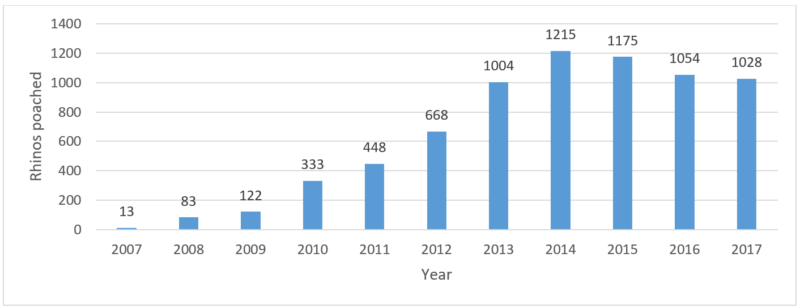
Figure 3: Number of rhinoceros poached in South Africa per year from 2007 to 2016. Source: Author’s composition, based on Save the Rhino International (2018)
Mainstreaming of sustainability
There has been some progress in seeking to promote sustainability in general and the preservation of natural capital in particular. South Africa is one of the seven pilot countries in the global project on Advancing System of Environmental Economic Accounting (SEEA) - Experimental Ecosystem Accounting (EEA). It is also party to the Gaborone Declaration for Sustainability in Africa (GDSA), a platform that promotes the valuation of nature, and the transition to a green economy and sustainable development. Important milestones have been made with regards to natural capital accounting (NCA). The history of incorporating natural capital into national accounting systems dates back to the 1980s, starting with the country’s national Mineral Accounts assessment (DEA 2016b). The country has well-established natural capital accounts in three sectors (namely energy, fisheries, and minerals), and is working towards accounts for other nine sectors (GDSA and CI, 2016, p. 18).
The pressure on natural assets due to business activities is notable. Against this backdrop, the private sector, especially big corporates, have increasingly been embracing sustainability objectives. The Institute of Directors in Southern Africa (IoDSA) has been leading a number of initiatives to enhance governance among South African companies. This is coupled with the efforts by the Johannesburg Stock Exchange (JSE) to transform itself into a sustainable stock exchange. The National Business Initiative (NBI) has also been at the forefront of promoting environmental sustainability in the country. It is noteworthy to highlight that although sustainability concerns have largely been focused on big businesses, progressively the Global Reporting Initiative (GRI) in conjunction with Department of Environmental Affairs (DEA) are promoting sustainability reporting for small businesses.
Way forward
The active and meaningful participation of all stakeholders is necessary for sustainable utilisation of nature. Hence, it is important to enhance their understanding, and embed the valuation of nature into policy and decision making. This can contribute to ensuring the protection of nature, as well as maximising opportunities and minimising risks through sustainable utilisation of nature. All these will help contribute to the broader objective of transitioning towards a green economy and achieving sustainable development.
For the full report, click on the following link Nature in South Africa’s Transition to Sustainability: A Stocktake.
- Shakespear Mudombi, Trade & Industrial Policy Strategies (TIPS)
References
DEA. 2016a. “2nd South Africa Environment Outlook. A Report on the State of the Environment (Executive Summary).” Pretoria: Department of Environmental Affairs.
DEA. 2016b. “State of Play of Natural Capital Accounting (Draft Analysis Using the Gaborone Declaration for Sustainability in Africa (GDSA) Summaries).” Pretoria: Department of Environmental Affairs.
DEA. 2017. “South Africa Protected Areas Database (SAPAD_OR_2017_Q2).” Database. Department of Environmental Affairs, Republic of South Africa. http://egis.environment.gov.za.
GDSA & CI, 2016. Workshop on Regional Perspectives on Natural Capital Accounting. Report Prepared for Conservation International and the Gaborone Declaration for Sustainability in Africa. Gaborone Declaration for Sustainability in Africa (GDSA) & Conservation International (CI), Gaborone.
UNEP. 2016. “Measuring Inclusive Green Growth at the Country Level: Taking Stock of Measurement Approaches and Indicators.” Working Paper 2. GGKP Research Committee on Measurement & Indicators. Green Growth Knowledge Platform (GGKP).
